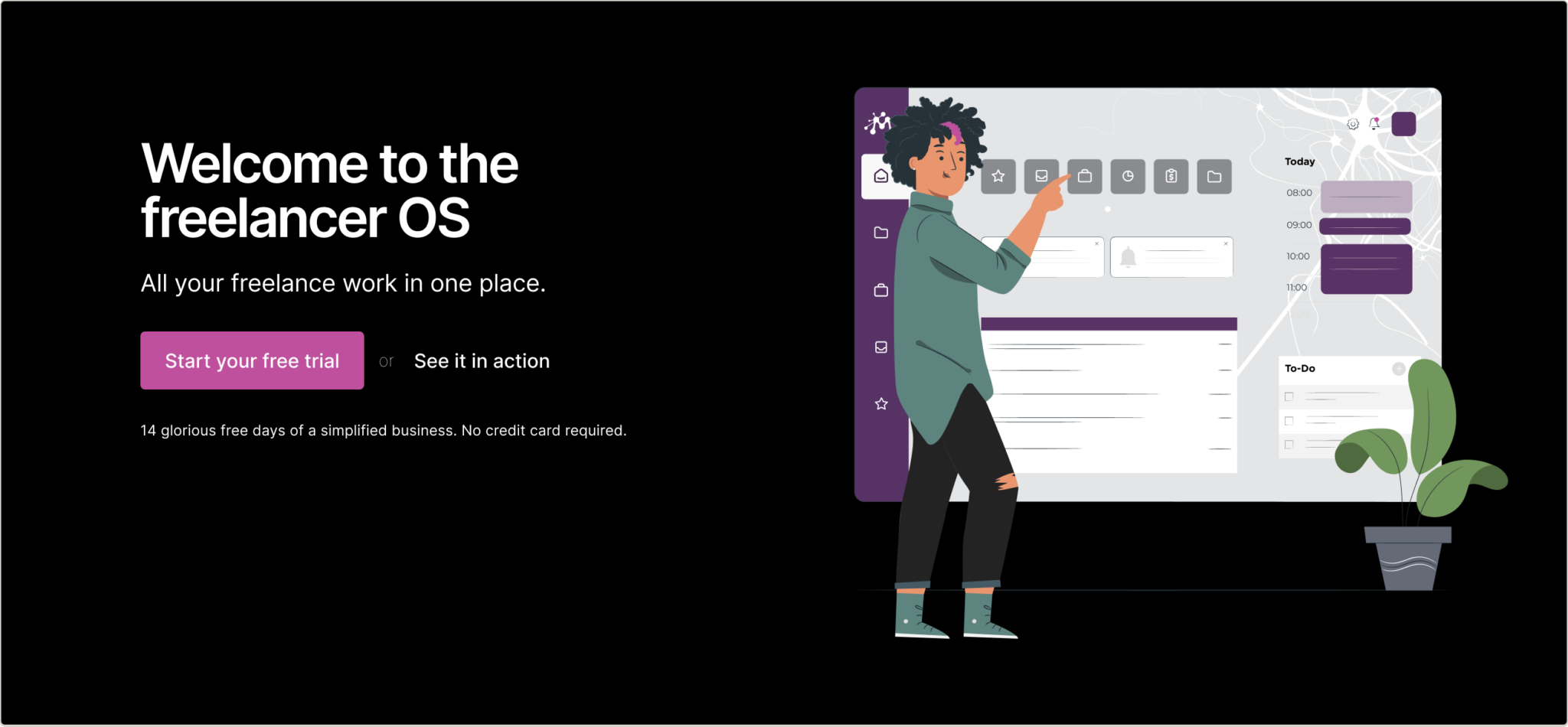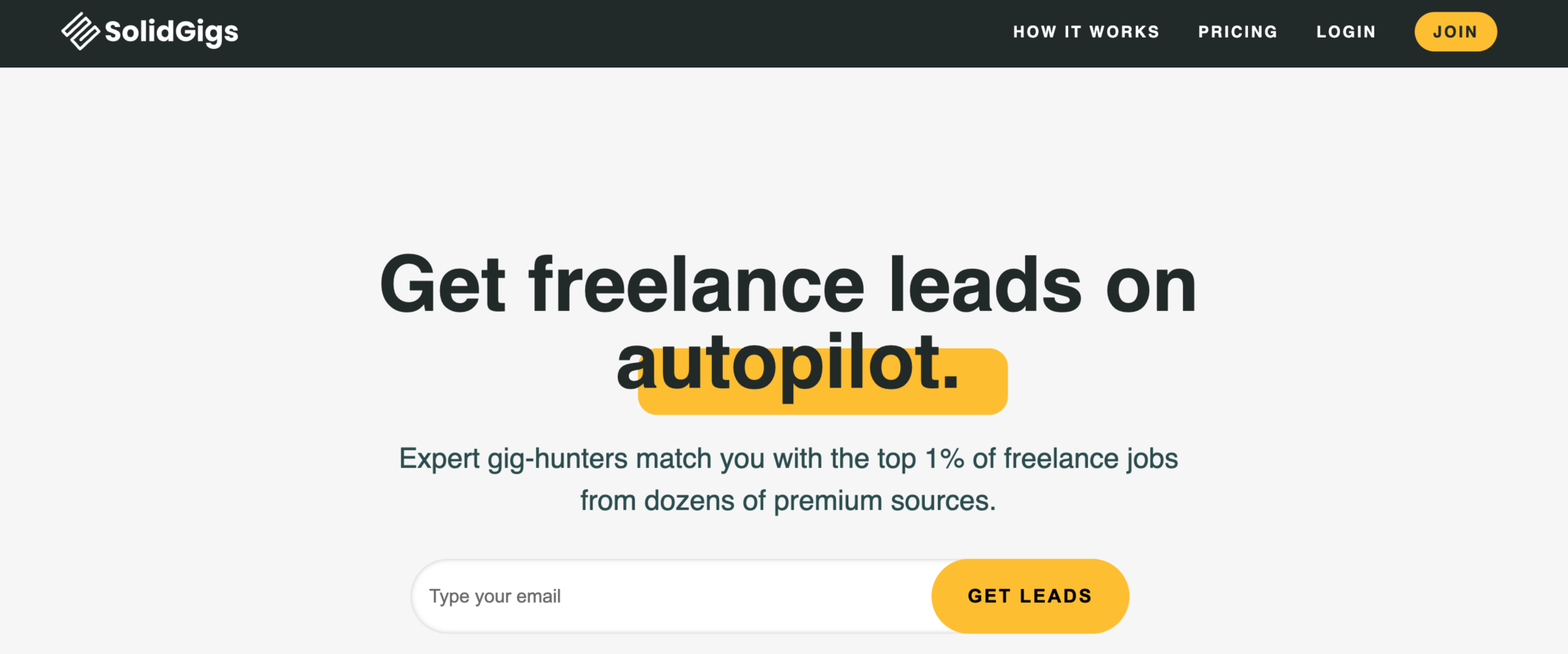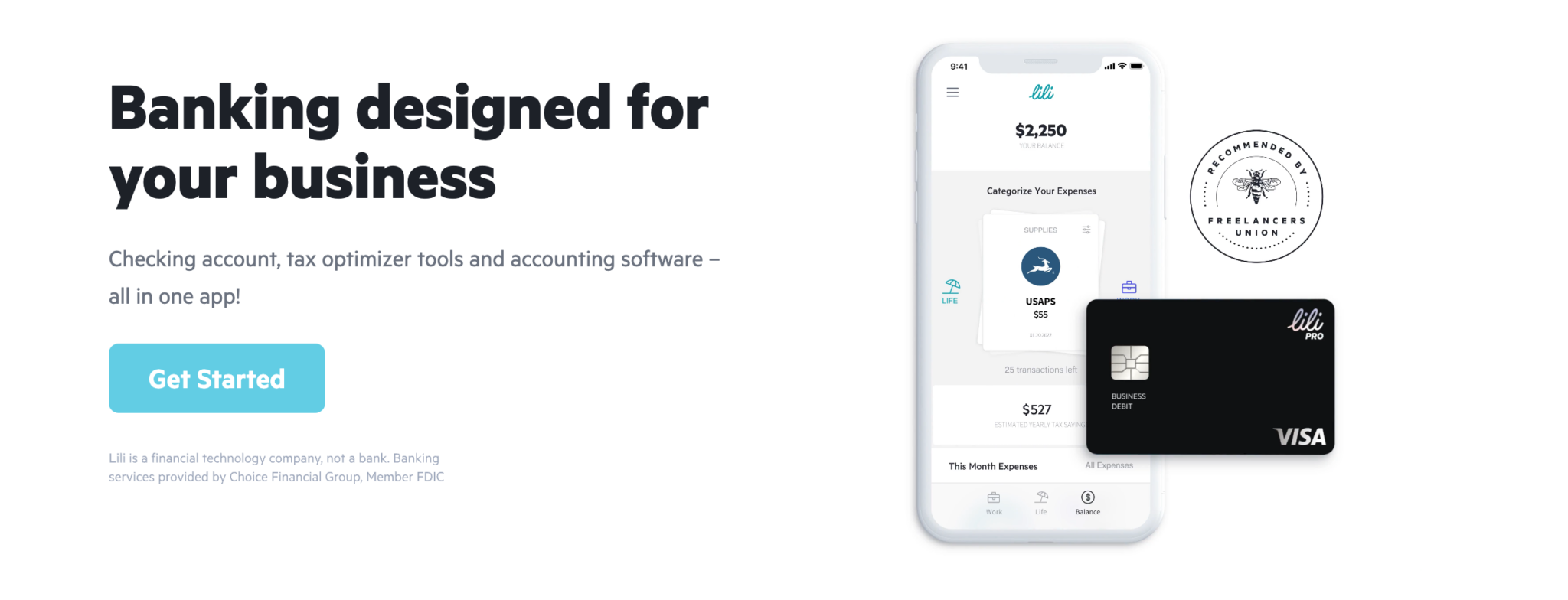The freelance world has gotten a lot of attention lately.
It seems that the world has finally discovered what a lot of us already knew. Becoming a freelancer opens a whole new idea of what work is. It gives you more freedom––you make all of the choices, such as where to live and work, how much to travel, even how much you charge for your services.
Pretty great, right?
Starting a freelance business is not without its drawbacks, of course, but for many people, the benefits are absolutely worth it. So, is it a good fit for you? Where do you start? What are the pitfalls along the way?
👀 The way clients search for freelancers has changed — stay visible across Google, ChatGPT, and AI platforms with Semrush One and land your next freelance client. Click here to see what you’re missing »
As a veteran freelance writer of the last 10 years, I’m happy to say that starting a freelance business is possible, and you can have a thriving career whether you decide to freelance full time or invest in a successful side gig.
To help you get there, let’s walk through some of the steps for starting a freelance business, some pros and cons and a few tips I’ve picked up along the way.
6 Steps for starting a freelance business
The truth is, there’s no one correct way to start a freelance business. There are lots of paths you can take to get there, but there are some basic steps that can help if you are overwhelmed, unsure or just need a bit of a road map.
Hone your skills
This isn’t the answer some people are looking for, but to have a successful freelance career, you need to start off with a solid skill base. Freelancing isn’t typically the kind of job that you can learn as you go. Companies look to freelancers to provide expertise that they are otherwise lacking.
Before you start looking for clients, think about what you are good at, and what types of projects you would feel comfortable completing on your own, without supervision or a team behind you. Zero in on these skills and learn all you can. Read books, take a course or browse the resources right here on Millo.
Find your niche
Skills are great, but sometimes starting a freelance business requires a narrower approach. For example, I am a writer––but I don’t just write any content. I typically work with CEOs to craft content that uses their expertise to make strong thought leadership pieces for sites like Forbes, Inc, Venture Beat, etc. This is a specific niche. Some writers focus on SEO content, others are bloggers, some exclusively write social media posts. Each requires a slightly different understanding of storytelling, marketing or algorithms.
The same thing can be applied to most freelancing skills. Some graphic designers work with packaging, others do branding, some do web design. Some photographers do weddings, others do commercial product shoots. You get the idea.
It may take some time to really zero in on your niche, but it’s something you should think about when you are starting a freelance business. To start, you might cast a wider net, and over time find out what your niche is — and that’s OK.
Choose a name
Thinking about what to call your freelance business is one of the most fun parts of starting a freelance business. You need a business name to set up a website, print business cards, add to invoices, and just to avoid any confusion.
Your business name says a lot about how you want to be viewed as a brand. Some freelancers just use their own name when starting a freelance business. Others use initials, a meaningful place name or number, and some get really creative and make up a totally new word for their business.
Whatever you choose, make it memorable, and ensure that it represents the values behind your business. Professional or fun, or a mixture of both—whatever you choose it should be about who you are. Just don’t get too caught up in this step, because in the end, your work and skills will do the talking and your business name is not as relevant in gaining work.
Understand the financial side
It is one thing to have great skills, and another altogether to run a company, even if it is only one person. Before starting a freelance business, it is important to learn what that means from a financial standpoint.
You will need to consider the legal ramifications of starting a freelance business, as well. In some states, you need a business license. Also, depending on the kind of work you do and the size of your business, you may decide to incorporate as an LLC in order to separate your finances.
You also need to remember that freelancers pay self-employment taxes, a fact that some sole proprietors forget when deciding how much to charge.
Finally, get yourself some good bookkeeping or project management software to help you track hours, revenue, expenses and all of your billing.
Check out Moxie, an all-in-one software suite made just for freelancers. Moxie is truly an app that can help get your freelance business off the ground, organized, and looking professional — and with their robust free plan, it fits the budget for any freelancer.
Trust me, you don’t want to take all of this on yourself.
Build a portfolio
In order to get paid as a freelancer, you need a way to showcase your work for potential clients. Portfolio pieces can come from student projects, work you do for family and friends, or mockups you create just to show off. Just be sure that the work in your portfolio is representative of the best you can do.
One of the best ways to build a portfolio as you are starting a freelance business is to volunteer for something you believe in. Choose a small local business, a charity or a family member who could use something that you have to provide. Do amazing work for them, and you will not only be helping a great cause, you will have something you are proud of to show prospective clients.
Land that first client
The real question most people have when wondering how to go about starting a freelance business is how do I get someone to pay me to do what I love? The short answer is—you have to put in the work. You have to do all of the things above to become a successful freelancer.

The first client is typically the hardest to get, because someone is taking a chance on you without having a lot of references or a ton of work or success stories to look at.
If you ask ten freelancers how they landed their first account, nine of them will tell you it was from networking. Start by letting your personal and professional contacts know what you do and that you are looking for work. You never know what might turn up. I found my first paying client through a past coworker, and I have personally worked with many freelancers who have found their clients through friends and colleagues. Get the word out, land that first job, and if you do good work, more clients will follow.
Pros & cons for starting a freelance business
Before starting a freelance business, you should know that it is not all sunshine and rainbows. Like any other career path, there are both good and bad sides to working for yourself. When you are diving into something new, especially when it can change the course of your professional life, it is always better to have more information. So let’s dive in.
Pros:
- Flexibility. Starting a freelance business offers the freedom to work from anywhere, travel more, stay home with your kids, spend more time with family and friends, work non traditional hours, and more.
- Control. When you work for yourself, you have the final say about who you work with and what projects you take on. You don’t have to wait for a promotion, you can change course or up-skill any time you are ready.
- No ceiling. You decide what to charge, so your earning potential is technically unlimited. Of course, you have to find the right kinds of clients and you have to back up your rates with stellar quality, but you have the capability of building multiple streams of income, branching out, charging more and finding passive revenue sources, all to build the business you want to build.
Cons:
- Stability. A full time job comes with a full time paycheck. You get the same amount of money at predictable times, so you can set a budget and live on a reliable schedule. Starting a freelance business is a lot more turbulent, especially at first. You can do things to offset this, but freelancing will never be as predictable as a traditional job.
- Management. While you have total control over your business, as a contractor, you don’t always have total control over your clients. Collecting payments and dealing with difficult people are not always easy, but it comes with the territory.
- Work/Life Balance. When you are your business, it can be difficult to separate your professional life from your personal one. Working from home makes it harder to leave work and work. Being able to travel and work at the same time is great, but it also means that you are working when you are traveling. There are ways to deal with this, but it is important to consider that freedom doesn’t always mean laying on the beach. It comes with responsibility.
Overwhelmed? Do these 3 things first
1. Get Organized with Moxie (formerly Hectic)
When you’re first starting a freelance business, it’s the perfect opportunity to set yourself apart by looking professional and organized. With Moxie, you can gain all the necessary tools to run your business with professional looking invoices, project management, accept online payments, branded proposals and contracts, time-tracking and more. It’s the app that helps you Freelance Smarter, because it’s made for freelancers, by freelancers.
2. Find Jobs with SolidGigs
Look, we said it above — finding your first gig isn’t always easy. What if your network of family and colleagues just isn’t cutting it? SolidGigs is an affordable gig-finding service that scours the web for freelance jobs for you. When you’re starting out, this can be truly valuable to bring many opportunities right to your inbox so you can start applying and not waste any time.
3. Get a Freelance Bank Account with Lili
It may sound unnecessary, but getting a separate bank account for your freelance business is vital. Dividing your business funds from personal helps save you big time during tax season, and helps you keep your business accounting in check. Lili Bank is the perfect, simple banking solution to get started — their mobile app helps you deposit checks, transfer funds, track expenses, and more. Plus gain access to thousands of ATMs for cash deposits and withdrawals for free.
3 Tips for starting a freelance business
If you have looked at the pros and cons and decided that starting a freelance business is for you, congratulations! Starting down this new road is exciting and scary and amazing. Welcome aboard. Let me share a couple of my best tips for new freelancers to help you navigate not only starting a freelance business, but finding success along the way.
Work hard: Like, really hard. In the beginning, you might need to take on clients for a lower rate, do projects that you don’t love and stay up late (especially if you are still trying to do another job on the side). Keep at it, and remember your reasons for starting a freelance business in the first place. Freelancing isn’t for the faint of heart, and requires true dedication and time.
It gets better: Like most big changes, the beginnings of starting a freelance business can be a little rough. It helps to remember that you will get better at this, and it will get better along with you. You will learn which types of clients to avoid, how to structure your billing, and how to set boundaries. You will get better references and more experience, which will allow you to charge more. The beginning is temporary. Don’t give up, and you’ll soon find yourself loving the freelance life.
Find a mentor: Show me an entrepreneur, and I will show you the person they looked to for advice and support. Having someone who has been in your shoes and can relate to your experiences is invaluable.

Ready to start your freelance business?
Starting a freelance business has become incredibly popular since 2020 turned all of our worlds upside down. This is more than a fad. People all over the globe have realized that they can work from home, choose their own projects, set their own rates and find a lot of happiness in having a more flexible career. Starting a freelance business won’t make all of your problems go away, but if you’re willing to put in the time and effort, it just might be the best thing you ever do for yourself.
Keep the conversation going...
Over 10,000 of us are having daily conversations over in our free Facebook group and we'd love to see you there. Join us!





